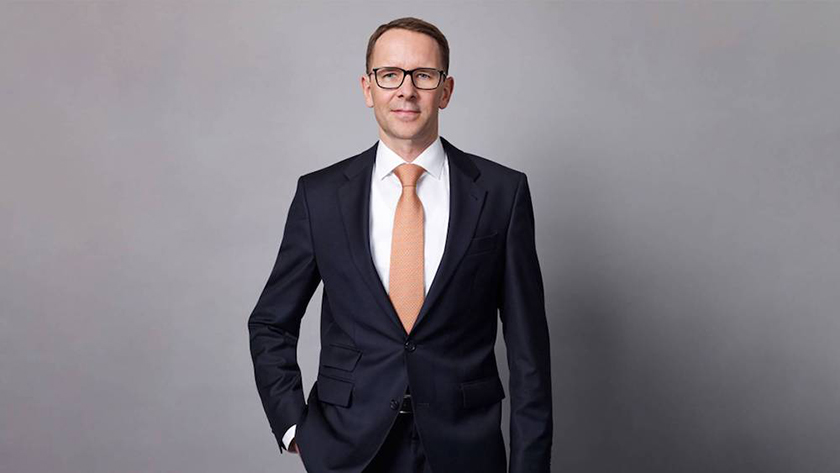More news
- Asian paint regulatory round up – Indonesian exterior paint still uses lead, warns W...
- Nigeria’s paint industry navigates regulatory changes and economic challenges amid p...
- Focus on the global coatings market: Global coatings market outlook
- Ask Joe Powder – October 2024
- Chinese paint majors look to domestic consumer sales as commercial real estate slumps

Wacker Chemie AG saw its year-over-year sales and earnings decline significantly in 2023 due to the ongoing weak market environment. According to preliminary figures, the chemical group’s sales totaled around €6.40bn last year, 22% lower than in 2022 (€8.21bn). This decline was prompted primarily by lower prices and volumes. Negative exchange-rate effects also impacted the development of sales.
The Group’s preliminary earnings before interest, taxes, depreciation and amortisation (EBITDA) amounted to €824M for 2023 (2022: €2.08bn), down 60%. This was due to lower prices along with persistently high energy costs and reduced plant-utilisation rates as a result of the decline in sales volumes. Savings from the Group’s ongoing efficiency measures positively supported the development of earnings.
“The global industrial engine began to stutter in 2023 and many companies felt the impact, as did we at Wacker,” said President and CEO Christian Hartel (pictured). “Price pressure was high, and the recovery in customer demand that was hoped for at the beginning of the year did not materialise. Persistently high energy prices in Germany further impacted our business. As a result, we could not post sales and earnings similar to the record figures Wacker achieved in 2022.” According to Hartel, a recovery in demand is currently not in view.
Wacker has been meeting the challenges of the ongoing weak market environment by increasing its focus on efficiency and cost discipline. The CEO remains optimistic about the company’s long-term prospects: “As great as the current challenges may be, we will continue to benefit from global megatrends in the medium and long term. Digitalisation, renewable energies, electromobility and energy conservation are among the key drivers of our business,” he emphasised. “Strategically speaking, we are well positioned and remain committed to our 2030 growth targets. We invest systematically in our future. Today’s investments are the foundation for tomorrow’s growth.”
READ MORE:
Wacker is among the first chemical companies worldwide with a validated net zero target for 2045
Business divisions
Wacker sales declined year over year in 2023 due to the persistently weak market environment in its chemical segments. In its polysilicon business, the decline was particularly pronounced.
According to preliminary figures, WACKER SILICONES generated annual sales of €2.74bn, down 21% on the previous year (€3.45bn). WACKER POLYMERS generated sales of €1.58bn in 2023 (2022: €2.00bn), which was likewise a drop of 21%. At WACKER BIOSOLUTIONS, sales in 2023 of €337M matched the prior-year level (2022: €331M). At €1.60bn, WACKER POLYSILICON’s sales in 2023 fell 30%year over year (2022: €2.29bn).
EBITDA declined across all business divisions compared with 2022 and was markedly lower year over year at WACKER SILICONES, WACKER BIOSOLUTIONS and WACKER POLYSILICON. The chemical company also recorded declines in its polymers business. Cost savings from the Group’s ongoing efficiency measures strengthened EBITDA in every division.
WACKER SILICONES generated EBITDA of €236 million in 2023 (2022: €876 million), which represents a decrease of 73%. In addition to lower prices particularly for standard products and lower volumes of speciality products, reduced plant-utilisation rates impacted EBITDA.
At WACKER POLYMERS, EBITDA amounted to €253M (2022: €289M). This decrease of 12% was chiefly due to the significant year-over-year decline in selling prices and volumes. Lower raw-material prices had a positive impact on the division’s EBITDA.
WACKER BIOSOLUTIONS generated EBITDA of €7M last year (2022: €17M), a year-over-year decline of 59%. This decrease was mainly attributable to integration and upfront costs at the León and Halle sites.
WACKER POLYSILICON’s EBITDA fell 61% in 2023 to €321M (2022: €826M). This decline was primarily prompted – for production-related reasons – by lower volumes and prices for solar-grade polysilicon. Ongoing high energy prices in Germany also had a negative impact. The share of semiconductor-grade polysilicon to total volumes grew further in 2023.







